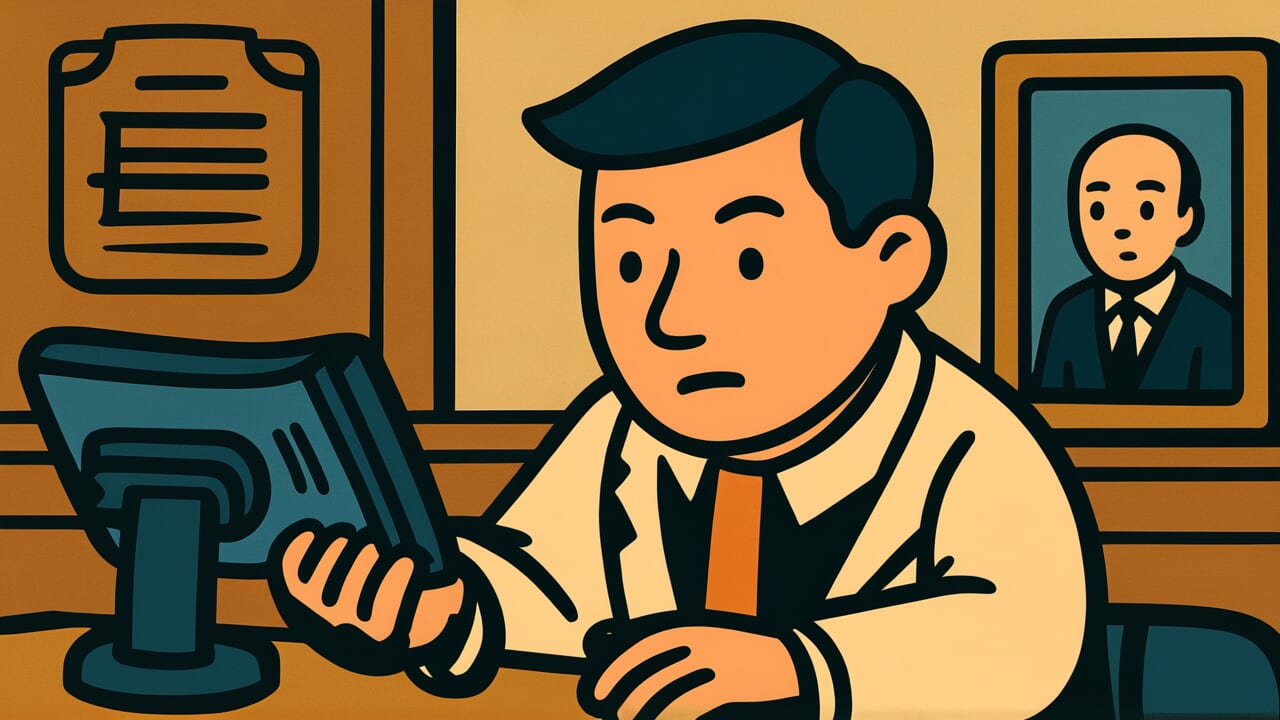How to Read “A scholar’s misconduct”
gakusha no fushinmochi
Meaning of “A scholar’s misconduct”
“A scholar’s misconduct” is a proverb that means intellectuals are more likely to cause moral problems in their private lives. It points out the tendency of people who have studied extensively and teach theory and morality to others to create problems with money or relationships in their own lives.
This proverb is used when highly educated people cause scandals or when someone who says admirable things doesn’t act accordingly. It contains an ironic observation that there’s a big gap between understanding something intellectually and actually doing it.
Intellectuals especially tend to fall into this contradiction. Even today, we sometimes hear news of famous critics, educators, and experts causing scandals in their private lives. This is exactly the situation this proverb describes.
It’s an expression that points to a fundamental human weakness: knowledge and practice are two different things.
Origin and Etymology
The exact first appearance of this proverb in literature is unclear. However, it’s believed to have spread from the Edo period to the Meiji period. “Fushinmochi” means having bad conduct, referring to moral disorder in one’s private life.
The background of this proverb likely lies in the difference between the lives of intellectuals and common people. In the Edo period, those who studied learned moral philosophy centered on Confucianism. They were expected to be models for society.
However, in reality, scholars with high education often caused problems with money or romantic relationships.
What’s particularly interesting is that this proverb was born from an ironic observation. Even if you understand correct morality in your head and can teach it to others, you can’t control your own desires and emotions.
Common people saw through this contradictory human nature with clear eyes. This proverb succinctly expresses the gap between knowledge and practice, a human weakness that remains unchanged from past to present.
You could say this phrase contains a kind of resigned human observation that the world of scholarship and the world of real life are separate things.
Usage Examples
- That professor is an authority on ethics, yet he got in trouble for misusing research funds. It’s truly a scholar’s misconduct.
- A teacher who spoke about admirable educational theories neglected his own family. “A scholar’s misconduct” is well said indeed.
Universal Wisdom
The proverb “A scholar’s misconduct” sharply points to a fundamental human contradiction. It’s the deep gap between knowing and doing.
We’ve all experienced this. We stay up late knowing it’s bad for our health. We waste money knowing we should save. Even when we understand with our heads, our hearts and bodies don’t follow.
This contradiction exists regardless of how much knowledge we have. In fact, it can become more pronounced as knowledge increases.
Why is this? It’s because gaining knowledge makes people overconfident. The pride of “I understand” actually makes self-management lax. Also, people skilled in abstract thinking tend to neglect careful attention to concrete daily life.
They become so absorbed in discussing ideals that they can’t see the reality at their feet.
This proverb has been passed down for so long because it’s not just criticism of intellectuals. It’s an insight into the weakness all humans carry. We are all, to varying degrees, beings who “know but can’t do.”
Our ancestors watched this human nature sometimes harshly, sometimes warmly. There are no perfect humans. That’s why this proverb teaches us the importance of living without forgetting humility.
When AI Hears This
The total amount of cognitive resources the human brain can use at once—concentration and judgment—has limits. Brain science research shows that when you acquire specialized knowledge, certain brain regions enlarge while other regions’ activity relatively decreases.
For example, London taxi drivers develop their hippocampus to memorize complex road networks. But reports show their visual memory ability becomes lower than average people.
For scholars, this phenomenon is even more pronounced. When thinking in their specialized field, the brain consumes enormous energy. The adult brain is only 2 percent of body weight but uses 20 percent of total energy.
If you keep thinking about difficult theories, the energy available for everyday judgments necessarily decreases. In other words, “misconduct” isn’t laziness. It’s the result of the brain prioritizing resources for maintaining specialized knowledge.
Even more interesting is that experts rely more on “automated thinking.” They can make advanced judgments instantly in their specialized field, but conversely take more time with trivial daily judgments.
This is because the brain creates neural circuits specialized for expert domains and stops using general judgment circuits. A scholar’s misconduct is an ironic side effect born from the brain’s efficiency.
Lessons for Today
What this proverb teaches you today is the calm recognition that knowledge and character are separate things. Having academic credentials or specialized knowledge doesn’t necessarily match being trustworthy as a person.
That’s why we need to develop eyes that don’t judge people only by titles or words, but look at their actual actions.
At the same time, this proverb is a warning to ourselves. When we learn and understand something, we tend to feel like we “get it.” But what’s truly important is practicing that knowledge in daily life.
Before saying admirable things, first look at your own feet. Act honestly in small things. Isn’t such humility true wisdom?
In modern society, information overflows and anyone can easily gain knowledge. That’s exactly why being conscious of the difference between knowing and practicing has become more important than ever.
When you learn something, don’t keep it only in your head. Try putting it into action, even with a small step. That accumulation leads to real growth.



Comments